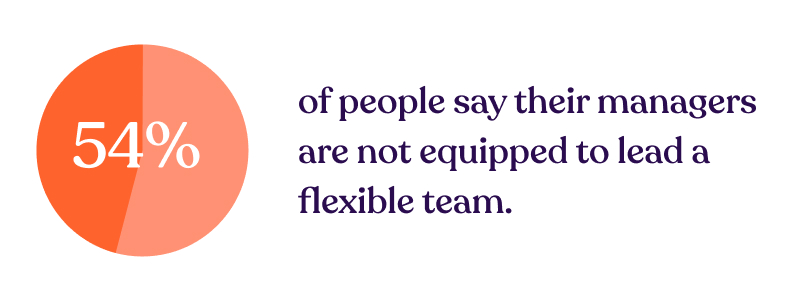2020 will always be known as the year where all your business was brought under one roof: caring, working, homeschooling, your hobbies, entertainment and even your holidays. When everything is under one roof, things become hard to ignore. Your manager can’t ignore your kids or the elderly parent you’re caring for. Your kids can’t ignore your work persona or the person you become when a deadline isn’t met. Big stats start to come to life. One that’s of particular relevance to us this week is: in Australia, 1 in 9 people are informal and often unpaid carers for people with disabilities, health conditions or ageing family members. This means one in nine people on your team or in your office may belong to this group.
We can all agree that carers make up the most invisible group in workplaces. It’s not common to see two colleagues sharing details about their responsibilities at home in this space: the guilt they feel on the home and work front, the thoughts of taking a step back from work to care full time, or the financial pressures that this territory brings. The carer juggle is not very different to the parenting juggle in many aspects – and for this reason, it is within the best interest of organisations to invest in support for carers too. Flexibility and ‘culture of support’ may well be the buzzwords of 2020, but they could not be more relevant to the carers in the workplace.
A Circle In survey from earlier this year revealed that managers are not equipped to lead flexible teams. This is a necessary starting point. We will always have direct reports managed by leaders who may not have the same responsibilities as them. It’s important that this is recognised and the managers upskilled accordingly. Here are three ways to get started:
1. A great place to start is just by familiarising them with basic entitlements offered by the local government.
In Australia, employment laws to support carers in the workplace prescribe the following as a minimum under the NES:
- Requests for flexible working arrangements – available to parents or carers of a child under school age or a child under 18 years with disability.
- Personal/carer’s leave and compassionate leave – ten days paid personal/carer’s leave and two days unpaid carer’s leave per occasion. In addition, two days compassionate leave per occasion is also available if a member of the immediate family or the household has sustained a life-threatening illness or injury.
You can find more information on the NES from the Fair Work Ombudsman at www.fairwork.gov.au.

2. A good next step is to become aware of the resources available to carers so that you can support them by pointing in the right direction. Here are a two great ones:
- Carers Australia houses all information from understanding different types of care, resources for carers, NDIS and more!
- Carers Gateway provides a range of services like counselling and peer support groups to respite care, home help and equipment.
3. Lastly, take steps to hardwire flexibility into the everyday workings of the team.
Like parents, carers can benefit from a culture of flexibility and support. For this group, flexibility doesn’t mean planning altered work hours three weeks from now, it means having the freedom to drop everything, tend to an emergency or an unwarranted meltdown as and when it happens, and manage work at their convenience.
Bringing this level of flexibility requires rethinking traditional ways of working and providing a consistent employee experience. However, at a team level managers can begin with simple steps like (i) develop a system of clear documentation and constant knowledge sharing, (ii) building trust through an output driven culture (vs time spent during the traditional work hour window), and (iii) using collaboration tools to make it easy for team members to jump in and out of projects while always staying up-to-date.
By doing this, your employees will appreciate the support and bring their best selves to work. When one is not worried that their job is at stake because they had to tend to an emergency, and has the peace of mind that their team supports this flexibility, the hours that they do put into the work will be their absolute best. These measures will also go a long way in reducing employee absenteeism and loss of good talent from workplaces.
For more resources on how you can support your carers and upskill your managers, have a chat with us here.







